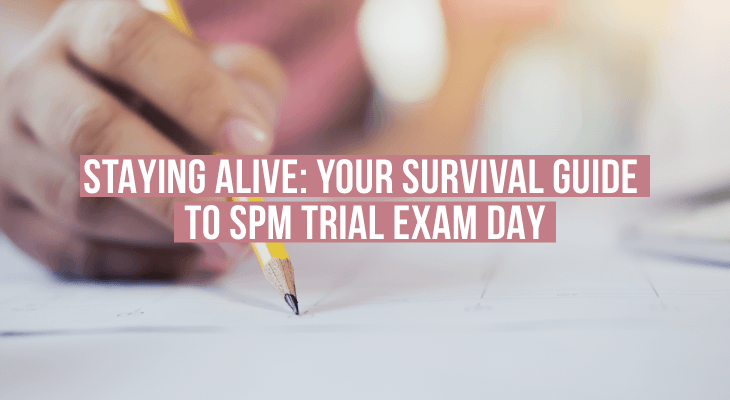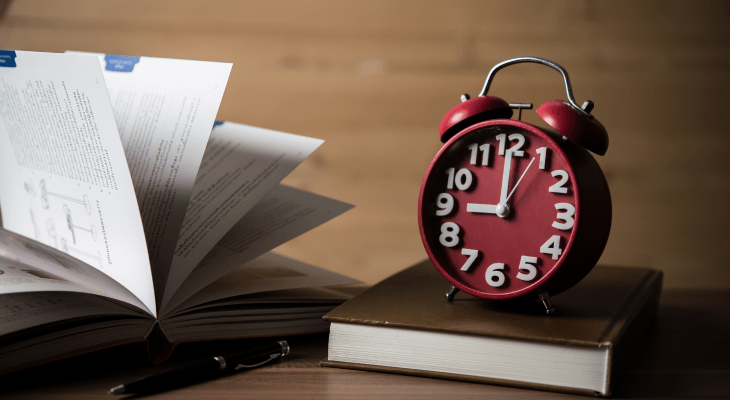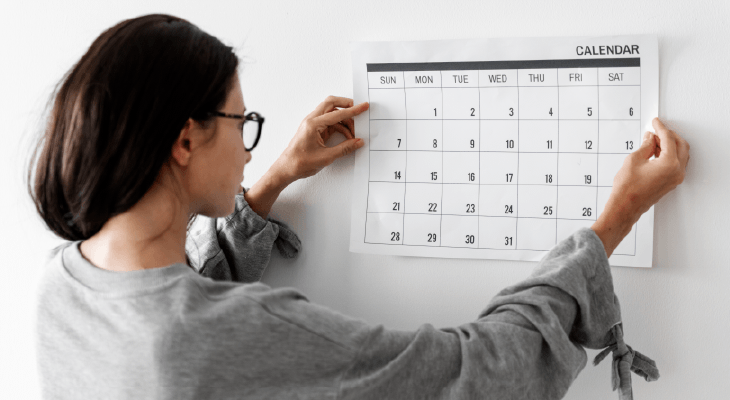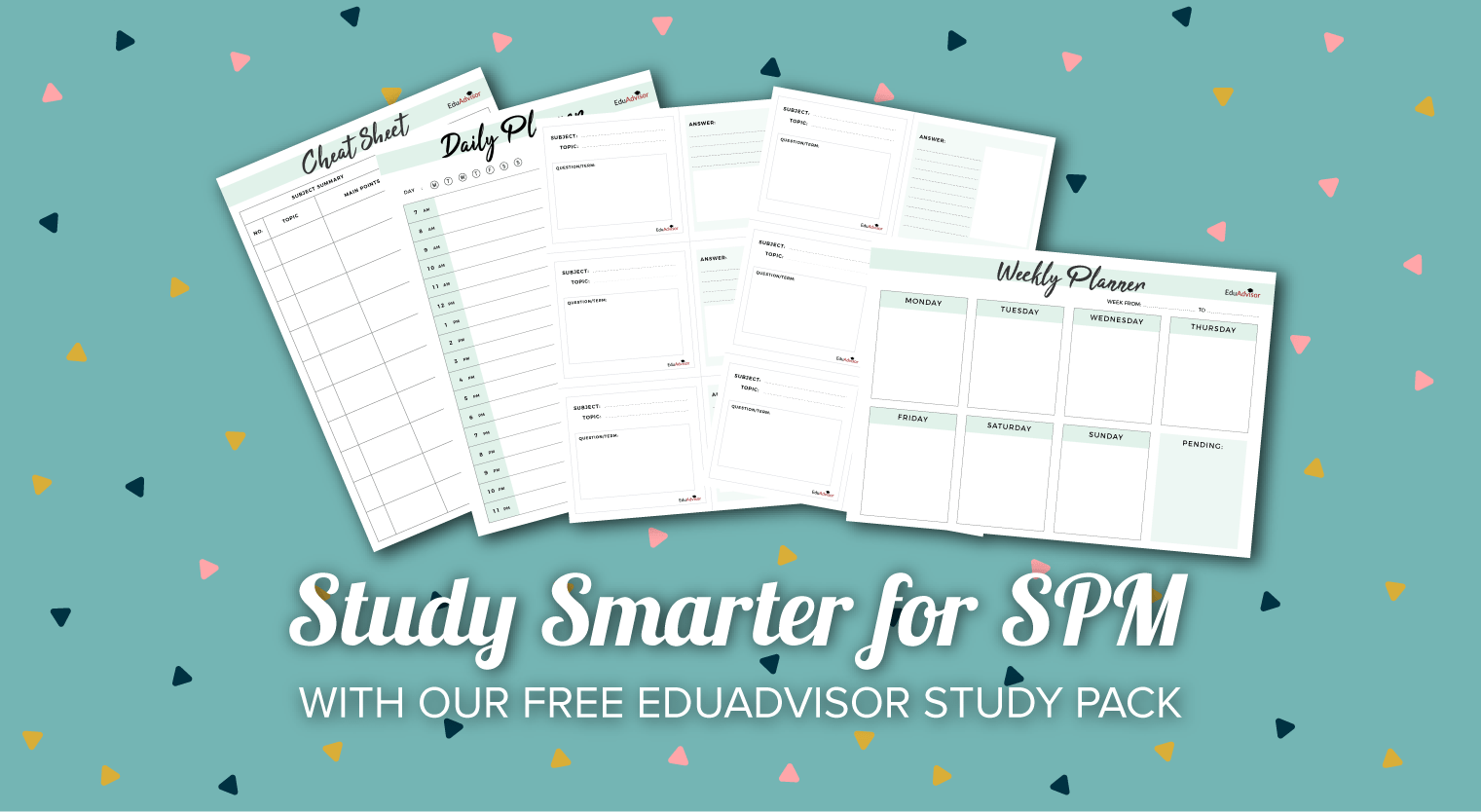Staying Alive: Your Survival Guide to SPM Trial Exam Day
Exam days are the worst! Or are they? Read on as we share 7 important things you should do before, during and after you sit for your SPM trial exam paper to make things a little bit easier.
Updated 05 Mar 2019

After weeks of preparation (we hope), your SPM trial exams are finally here!
In our previous article, we gave you some tips on preparing for your trials, but now we’re here with the details about the day of your exam.
Read on as we explore the important things you should do before, during and after you sit for your paper!
#1. You snooze, you lose

On the morning of your exam, remember to get up bright and early. The snooze button is your worst enemy – avoid it at all costs.
Waking up early will give you plenty of time to prep yourself for the challenging day ahead. If you're jumping out of bed and rushing to get ready, you're likely to be in stress mode, which isn't a good state to be in for the morning of an exam.
Take a shower, stretch and psych yourself up. Once you’re all set, head to school on time.
#2. Breakfast on brain food

Studies suggest that a nutritious meal may help boost short-term cognitive performance in children and adolescents. Consider pairing slow-release carbohydrates with protein or choline-rich foods to improve your memory retention and focus. This could include rolled whole oats with chia seeds and peanut butter, or a tuna or egg sandwich with whole grain bread to keep you full longer.
It’s also imperative that you stay hydrated throughout the day. Approximately 75% of our brains are made up of water, which gives the brain the electrical energy for all its functions. So make sure you load up on earth’s elixir to keep away the brain fog and to stay sharp during your exam.
However, beware of an overkill. You don’t want to be running to the loo every 5 minutes when you’re meant to be crunching numbers and writing essays!
#3. To read or not to read

You might see most of your classmates still burying their heads in their textbooks and mumbling into the void moments before your teacher calls you into the classroom. But you might have read that cramming too much information before an exam could result in some pretty disastrous consequences.
The truth is that it boils down to what works best for you. Looking through your notes before you enter the exam venue might help refresh your memory and act as a warm-up for your brain before you begin.
Yayasan Telekom Malaysia (YTM) scholar Nazihah Kamarulzaman says she only looks through important formulas immediately before an exam whilst Suvitha Palani, another YTM scholar says that she looks over short notes and important key points right up until the few minutes before the exam begins.
However, if you feel like your head is already overloaded with information, it might be a good time to stop and take a breather before you enter.
PRO TIP
Friends are cool, but you might want to take a few moments to be by yourself before the exam starts. Surrounding yourself with people who are uncontrollably anxious might cause you to panic. For now, you have your own bundle of nervous to worry about.

#4. Pay attention to instructions

Once you’re in the exam venue, take a deep breath and centre yourself. You could even say a short prayer if you’d like.
Don’t forget to listen to your teacher’s directions, read the instructions and provide all the necessary information at the top of your answer sheets. This sounds like an obvious thing to do but you might be so focused on answering the questions that you may potentially overlook the minute details.
Got Your SPM Results?
Upload your SPM results and get a list of personalised scholarship offers — instantly.
Start Now#5. Ready, get set, go!

Once you’re given the green light to start, skim through the questions to get a rough idea of what you are being asked. You should attempt questions you know the answers to first in order to build your confidence and gain momentum. Both top scorers, Nazihah and Suvitha, take this approach by attempting the easy questions first and the tougher ones later.
Remember to stick to the allocated time for each section. For example, your English Paper 1 is divided into Directed and Continuous Writing. You are advised to spend only 45 minutes on Section A and 60 minutes on Section B. You don’t want to spend too much time on the first part which is only worth 35 marks and compromise the second which is worth 50.
If you can’t finish a question within the prescribed time, try your best to round it up and move on to other questions. You can revisit these questions if you have the time. It’s better to have attempted all the required sections than to leave certain questions unanswered.
#6. Approaching the finish line

Take the last few minutes to check your paper.
In the miraculous instance where you do have some extra time on your hands, review answers you weren’t so confident about. Otherwise, ensure you have attempted all the necessary questions, rounded up answers to the requested decimal points and numbered questions correctly.

#7. You made it!

Once your answers have been collected, it’s time to breathe a sigh of relief! Try not to discuss answers with your friends immediately after. You’ve already done your best, so get some rest and focus on your next paper.
So there you have it – our guidelines to dealing with the day of your SPM trial exams. We hope you take these pointers, make them your own and forge your optimum exam approach. All the best!






